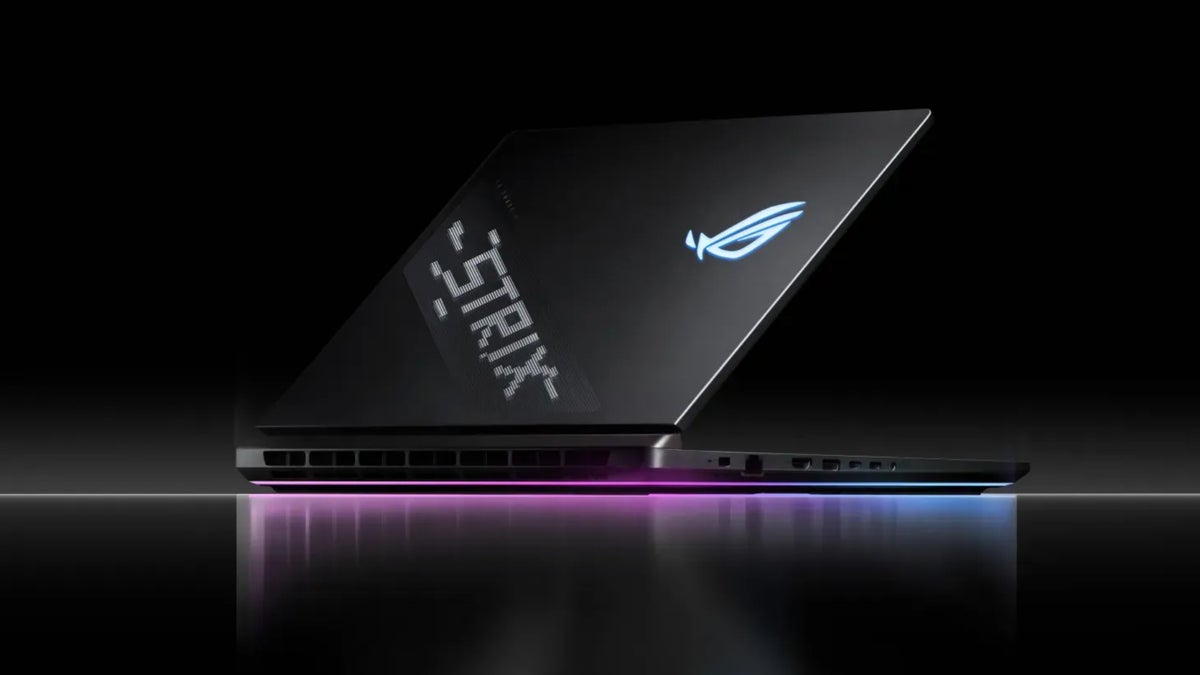RTX 5090 laptops are reportedly 50% slower than what one might expect

Mere days ago, we told you how RTX 5060 laptops might be pretty expensive (they're expected to hit the market in April), and now, it turns out they'll have another drawback.
Built around TSMC's advanced 4nm process, the mobile GeForce RTX 5090 graphics card was presented at CES 2025.
Notebookcheck ran some benchmark tests of laptops that pack the RTX 5090 mobile GPU – the 2025 Razer Blade 16 and Asus Strix Scar 18. The results don't look great, but that's according to one's expectations.
For starters, the RTX 5090 is, according to their tests, 15% to 30% faster than its predecessor, the RTX 4090 before applying DLSS features (Deep Learning Super Sampling for image enhancement and upscaling). If DLSS is applied, the difference in performance becomes even greater.
The report also mentions how this is a rather neglectful boost for a GPU that's been developed for three years:
That aside, if we compare the mobile RTX 5090 with the desktop model RTX 5090, numbers shift dramatically. The laptop variant is way behind the desktop version, which can be "mostly attributed" to TGP.
The Total Graphics Power (TGP) on laptops is lower than on desktops due to power efficiency, thermal constraints, and portability requirements. Unlike desktops, which benefit from a high-wattage power supply, laptops operate on batteries or compact adapters, making energy efficiency a priority. Lower TGP helps prevent excessive power consumption, which in turn improves battery life.
Thermal management is another critical factor, as laptops have limited space for cooling solutions compared to desktops, which can accommodate larger heatsinks, multiple fans, and liquid cooling systems.
To prevent overheating, manufacturers reduce power consumption and optimize GPU performance through lower clock speeds, undervolting, and dynamic power scaling. Additionally, laptops prioritize thin and lightweight designs, so lowering TGP ensures they remain portable while still delivering adequate performance.
Built around TSMC's advanced 4nm process, the mobile GeForce RTX 5090 graphics card was presented at CES 2025.
For starters, the RTX 5090 is, according to their tests, 15% to 30% faster than its predecessor, the RTX 4090 before applying DLSS features (Deep Learning Super Sampling for image enhancement and upscaling). If DLSS is applied, the difference in performance becomes even greater.
This means that Nvidia is relying heavily on DLSS features and the new transformer model to separate the new mobile RTX 50 series from the outgoing mobile RTX 40 series.
– Notebookcheck article, March 2025
That aside, if we compare the mobile RTX 5090 with the desktop model RTX 5090, numbers shift dramatically. The laptop variant is way behind the desktop version, which can be "mostly attributed" to TGP.
Thermal management is another critical factor, as laptops have limited space for cooling solutions compared to desktops, which can accommodate larger heatsinks, multiple fans, and liquid cooling systems.
To prevent overheating, manufacturers reduce power consumption and optimize GPU performance through lower clock speeds, undervolting, and dynamic power scaling. Additionally, laptops prioritize thin and lightweight designs, so lowering TGP ensures they remain portable while still delivering adequate performance.
However, users note that while the mobile RTX 5090 is 50% slower, it uses 70% less power, so the performance per watt ratio is decent. But the price is nevertheless pretty high.
Follow us on Google News












Things that are NOT allowed:
To help keep our community safe and free from spam, we apply temporary limits to newly created accounts: